Vitaliy Holod, the editor of the publication Our City – Tokmak, had been participating in rallies against the Russians since the beginning of the full-scale invasion. He continued his activism even after his city was occupied.
“The Russians stole our equipment. They stole my computer and all my documents.”
On a weekend evening, Sofia Square in the city center is crowded with people – another protest is taking place. This time, it’s in honor of the fallen Azov warriors. One man stands out in the crowd. He carefully observes what’s happening, quickly takes notes in his notebook, and captures a few pictures. Vitaliy Holod’s journalistic instinct remains strong – despite the war, evacuation, and other challenges. He now writes for the news agency Ukrinform, although he used to be a traditional newspaper chief editor for Our City – Tokmak. But that was during peaceful times…
— The newspaper came out on February 24, it was a Thursday, and that was the last issue – Vitaliy Holod sighs – and then we didn’t publish it. I was afraid they would come to the editorial office and want to publish their newspaper.
The newspaper where Vitaliy Holod worked no longer gets printed – only the website and social media platforms remain operational. The Russians repurposed the printing house in Tokmak as a dormitory.
— The Russians stole our equipment. They stole my computer and all my documents. And the journalist says they took computers, printers, and even the kettle in the editorial office.
In March, Vitaliy stayed in his city with his younger son. People gathered for daily protest rallies, and Vitaliy was among those fearless individuals.
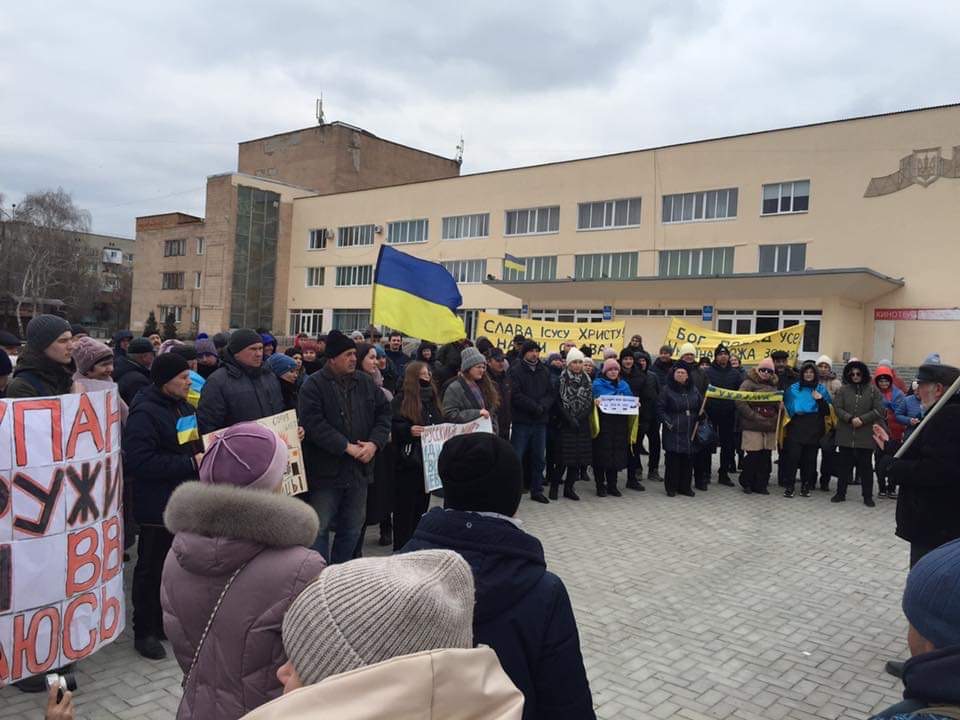
— One officer asked me, ‘Are you a journalist?’ I thought someone had told him about me. He also asked if I would like to speak to the commander. I replied, ‘Why should I talk to occupiers?’ He got offended. I posted photo and video reports about the rallies every day. March 7-8 saw the largest demonstrations. They were significant for our city – I counted no fewer than 500-600 people; the square was filled entirely, — recalls the editor.
In the beginning, the Russians couldn’t suppress the Ukrainians’ activity. Local activists also helped others. Refugees who managed to escape from Mariupol reached Tokmak. Columns of people were settled in kindergartens and churches.
— There were food shortages, but people still brought food for the arrivals! They took in Mariupol residents to spend the night. I also got refugees home to stay for several days in a row,— adds the journalist.
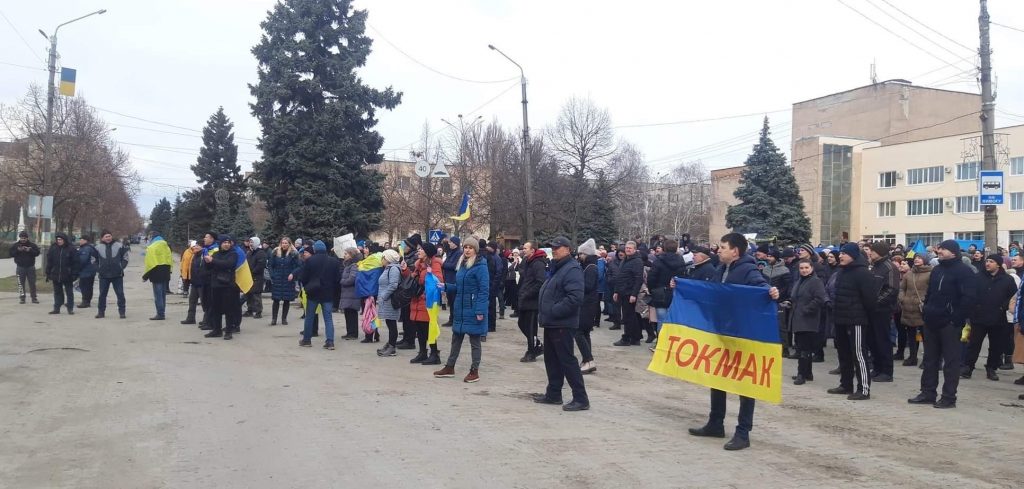
“When I left, I immediately felt the scent of freedom. And everyone says the same!“
Vitaliy evacuated to Kyiv in mid-March. He and his son were in the occupation for more than three weeks. They managed to escape before the Russian terrorists became more ruthless at checkpoints.
— I have three sons; two older ones were studying in Kyiv. My wife had just gone to them, and I stayed with the youngest. But essentially, because of him, I left; I didn’t want to expose him to danger. By the way, when I left, as soon as we approached our soldiers, I immediately felt the scent of freedom. And everyone says the same! — Vitaliy confesses.
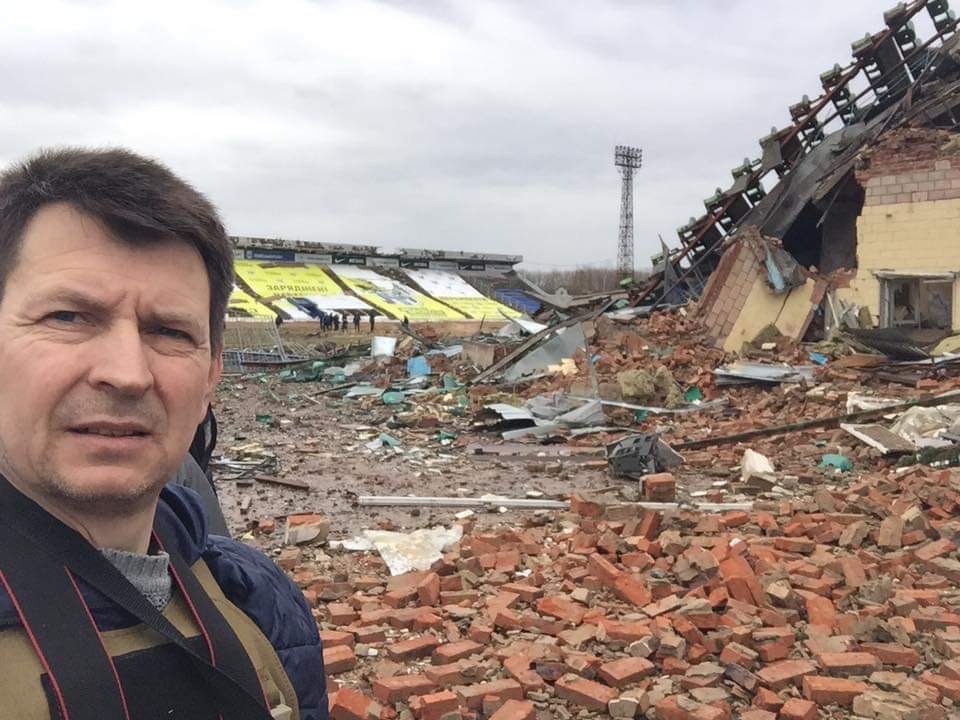
In Kyiv, he learned that Russians had visited his home a few days after his departure: they broke down the door and ransacked everything.
— Regrettably, there are individuals collaborating within the city;— Vitaliy explains the situation. — They turned their backs on our city. They betrayed all of us. The occupiers sought after me and began searching for many others following our protests against the Russian occupation. Neighbors informed me that five individuals dressed in black uniforms arrived at my residence. They forcefully broke down the door using a crowbar and pounded on it for an extended period, presumably assuming I was inside.
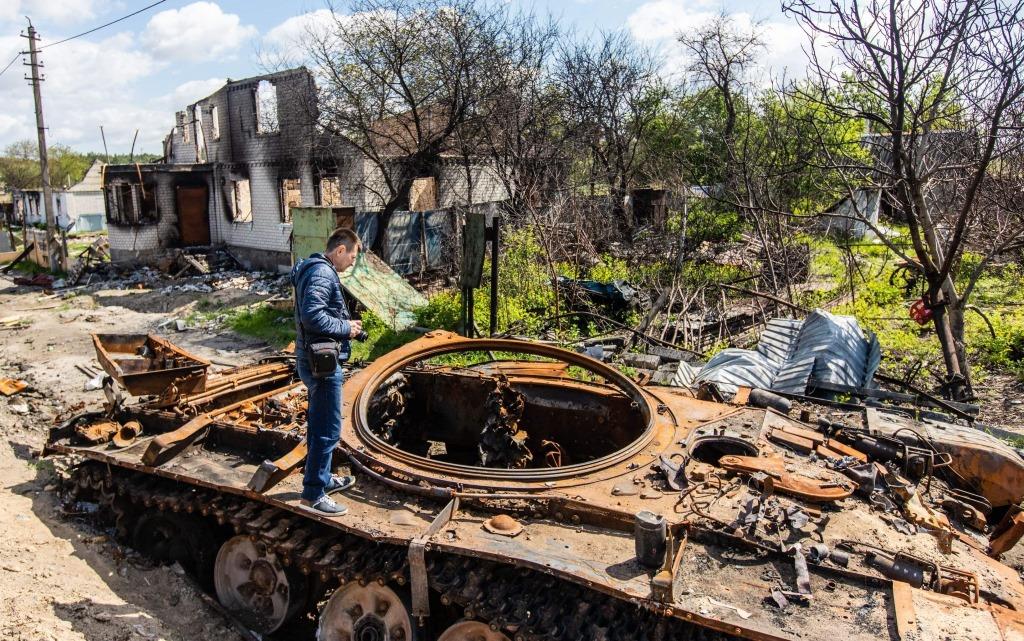
“I went on assignments with pleasure, even though I saw terrible things. But I was happy not to sit idle.”
Vitaliy doesn’t lose contact with his hometown, but he’s adapting to life in the capital. He helped volunteers with his sons in Kyiv and joined the journalists union. At the beginning of the full-scale invasion, there weren’t enough hands, so Vitaliy brought newspapers from printing houses in western cities of Ukraine. Then he found employment at the Ukrinform media agency.
— After the Russian occupation ended in the Kyiv region, I had a lot of tasks and assignments. I was traveling almost every day. I took on these assignments willingly, even though I witnessed disturbing things. However, I felt a sense of fulfillment by not being inactive and by being of help to others. I visited places like Irpin, Bucha… And you know, when people tell me that we suffered, I respond that it was actually the people in Irpin, Bucha, and Hostomel who endured the true hardships! When I returned to my journalistic work, I witnessed the extent of people’s suffering. I saw the village of Novoselivka in Chernihiv Oblast, completely devastated. This was my first assignment. And then I visited places like Irpin, Makariv, Bucha… — the journalist recalls his experiences.
The new team, mainly women, welcomed having a male colleague. They affectionately referred to Vitaliy as a savior because, during March, when all the women were evacuated and the office’s flowers were left unattended for a month, Vitaliy took it upon himself to care for the plants.
After work, Vitaliy often strolls around the city. He consistently visits the memorial on Sofia Square dedicated to his fellow countryman Vadym Foksha, a member of the Azov battalion, who tragically lost his life to a Russian air bomb that struck a bunker. Vitaliy believes that he will soon be able to resume his work at the newspaper in his hometown and is committed to documenting the stories of every fallen compatriot.
This article highlights the story of journalist Vitaliy Holod, who remained active in opposing the Russian invasion of Ukraine. Despite facing challenges such as occupation, theft of equipment, and danger from collaborators, he continued to engage in journalistic work and activism. His determination to document events and his commitment to his hometown are emphasized, showcasing his efforts to shed light on the experiences of his compatriots and the impact of the invasion.
This series, titled Executed Free Speech, is created as part of a project Drawing Ukrainian And International Audience’s Attention To Serious Violations Of Human Rights And Crimes Against Journalists And Mass Media By The Russian Federation, which is performed by the National Union of Journalists of Ukraine, with support from the Swedish non-profit organization Civil Rights Defenders.
JOURNALISTS ARE IMPORTANT. Stories of Life and Work in Conditions of War is a cycle of materials prepared by the team of the NUJU with the support of the Swedish human rights organization Civil Rights Defenders.
#CRD

 THE NATIONAL UNION OF
JOURNALISTS OF UKRAINE
THE NATIONAL UNION OF
JOURNALISTS OF UKRAINE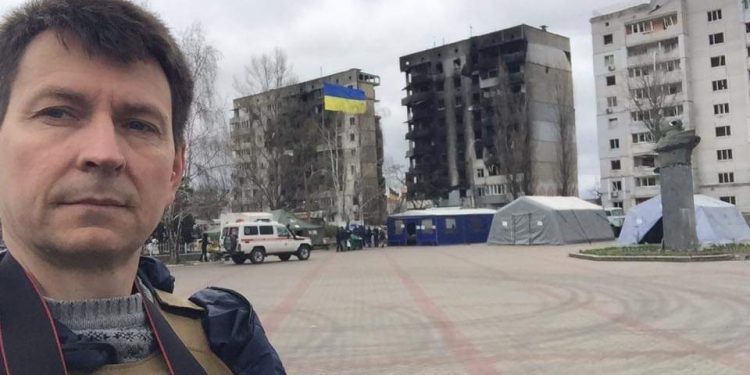
















Discussion about this post